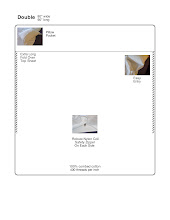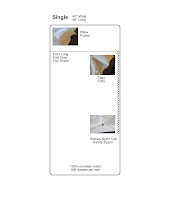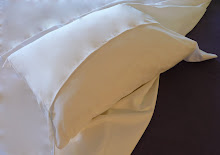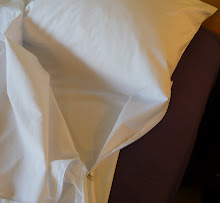After doing research into the cleaning standards of the major hotel chains in North America, here is what I have found, nothing, absolutely nothing. Oh sure there are points rewards and clubs, health spas and free breakfasts, sustainability and "green" programs and mission statements up the wazoo, but I could not find one chain that published anything about cleaning, laundering and sanitizing their rooms.
You would think that a clean room, being the raison d'etre of a hotel, would merit some standards, but cleaning standards don't exist in the hospitality business. Each hotel chain has their own standards. There is no universally accepted guideline or standard when it comes to such things as permissible levels of bacteria or detergent residues, suggested time intervals for bedspread and pillow laundering or replacement, and no list of safe cleaning agents.
I am not suggesting there is no data or criteria on the subject of housekeeping in the hospitality industry, There is an interesting report written by Michael C. Sturman for the Cornel University School of Hotel Administration, funded by JohnsonDiversey Inc. a subsidiary of Johnson Wax Professional, which addresses the measuring of housekeeping performance. While this report focuses more on the efficiency of housekeeping rather than the effectiveness, it does provide a window into the way the industry thinks about cleaning and the cost of cleaning.
The CDC ( Centers for Disease Control ) publishes guidelines for Environmental Infection Control in Health-Care facilities. which encompasses surface cleaning as well as bedding. There is no reason why we would hold the hotel industry up to the same standards as a hospital but there are a few constants when dealing with bedding. The need for water temperatures to exceed 70 degrees celsius, the use of chlorine bleach, required high heat drying and or pressing, the need to monitor cleaning agent residues.
While the CDC states that, " Although contaminated textiles and fabrics in health-care facilities can be a source of substantial numbers of pathogenic microorganisms, reports of health-care–associated diseases linked to contaminated fabrics are so few in number that the overall risk of disease transmission during the laundry process likely is negligible." there are no guidelines for the hotel or hospitality industry on the CDC website.
There are plenty of companies that train and certify workers as housekeepers, and other companies that certify the hotel, I have never seen any certification presented on any website or in the lobby of any hotel I have ever stayed at. Not enough hotel chains adhere or advertise that they adhere to any certification at all. It seems like hygiene is a taboo subject, the unwritten law, don't talk about how clean , talk about how soft.
The more I researched this topic, the more I realized that we, as the traveling public, look upon the Hospitality industry as just that, an industry, run by professionals to corporate standards. But in actuality, the way your room is cleaned is a more a function of how efficient, knowledgeable and conscientious the person who cleans it is and the chemicals utilized. When the odd room is inspected by management, what is the criteria, a visual inspection, a sniff of the air, swab tests ? The cleaning agents used by each hotel, are they safe, is enough used to complete the task or is too much used causing residues over the healthy limits.
I realize that it's just a hotel room, not a bio facility. That's true but, who would have thought 20 years ago that staph ( MRSA ) bacteria would transmit infection through gym towels. When you were a kid, your mom didn't ask you if the bleach residue in your underwear was causing you discomfort. Allergies were hay fever, maybe peanuts or cats, but not " chemical sensitivities ". The times, they ARE a changin'. In a study published by the University of Virginia Health System, residual rhinovirus was found on 35% of items handled by people who were asked to spend a day and night in a hotel room while they had colds.
Is it any wonder that so many protective products like anti allergy travel sheets, hand and ultra violet light sanitizers, and portable air filters are marketed towards the traveling public ? Every few weeks a new article or television news spot highlights the ongoing bedbug problems in hotels or how clean the drinking glasses are in hotel bathrooms. Why aren’t these public health matters addressed by the hospitality industry or the government ? Possibly because the problem is too big, too wide spread and too hard to police.
With all the maladies and allergies and sensitivities, the bed bugs and lice, wouldn't you rather read how your room is prepared and, with what chemicals, than what junk food in the guise of a free breakfast is offered. I would want to know my room is free of germs and pests and cleaned according to researched and proven standards, If most large hotel chains train their staff then there are standards, some one buys the cleaning agents so there are names of chemicals used. Why not just make some of this info available. You know the urban myth, "you never see a baby pigeon" well here's mine, " you never know how often the bedspread is cleaned."









No comments:
Post a Comment